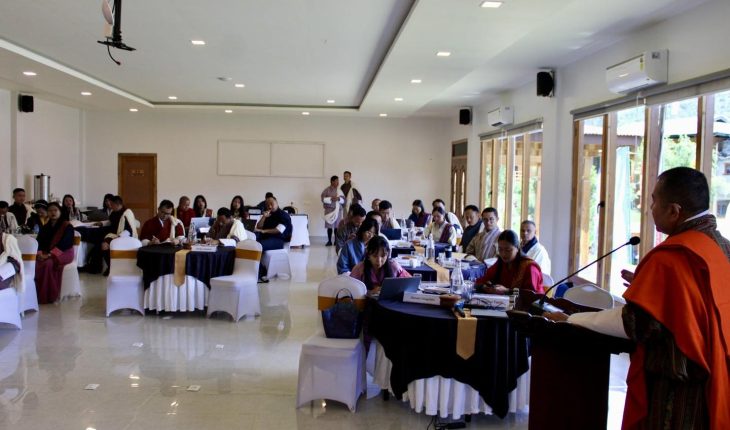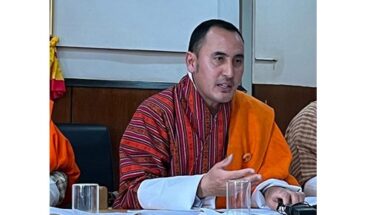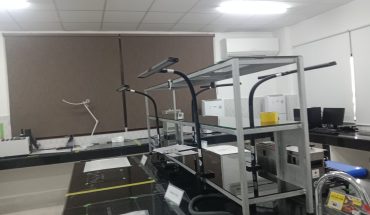
NGAWANG JAMPHEL
Paro
Health Minister Tandin Wangchuk has reminded journalists that the way they report on health issues can either strengthen or weaken public health systems in Bhutan.
He emphasized that the media is a powerful partner in shaping public opinion and building trust, but warned that reckless or premature reporting can create panic and derail important health initiatives.
Speaking at a three-day workshop on “Strengthening Health Systems for Equity and Resilience,” organised by the Ministry of Health in partnership with the World Health Organisation (WHO), the minister pointed out that the media’s role is not only to deliver information but also to connect science, policy, and society. He urged reporters to practice caution, accuracy, and responsibility, especially during health emergencies.
The minister recalled incidents during the Covid-19 pandemic and the leptospirosis outbreak in Dewathang. While news coverage helped raise awareness, it also triggered unnecessary panic at times.
He explained that confirming an outbreak under WHO standards takes at least a week, but Bhutan managed it in three days. Yet, the ministry was accused of responding late. “This is not fair reporting,” Lyonpo said. “In emergencies, journalists should wait for confirmation before rushing to publish.”
According to him, constant pressure from reporters can overwhelm health professionals who are already stretched with daily responsibilities. He requested journalists to understand that delays in responses do not mean officials are unwilling to share information, but that doctors and staff need time to carry out their tasks properly.
Highlighting the dangers of negative reporting, Lyonpo cited the case of the ministry’s plan to import 147 nurses to address a shortage in hospitals. The initiative was shelved after strong public criticism arose from concerns that foreign nurses would be paid more than Bhutanese staff.
“Our hospitals remain understaffed, and our nurses undervalued, but that decision was meant to strengthen the system,” he said.
The workshop, attended by journalists, WHO representatives, and health officials, also discussed technical topics such as non-communicable disease (NCD) prevention, universal health coverage, and risk communication during emergencies.
Besides that, the participants were also introduced to Standard Operating Procedures (SOPs) for sharing information with the media, which many welcomed as a step toward better transparency and coordination.
WHO’s Representative in Bhutan, Dr. Bhupinder Kaur, also underlined the crucial role of the media in crisis communication. She said that the way messages are framed can influence how communities respond. “By giving people the right information at the right time, journalists can actually save lives,” she noted.
The Health Minister further acknowledged that the rapid growth of citizen journalism and social media has increased competition for mainstream media, often leading to sensationalism and lack of fact-checking. He warned that this environment makes professional journalism even more critical.
“Truth, accuracy, and ethics in reporting are what will maintain your relevance and credibility,” he told the participants.
In his concluding remarks, Lyonpo Tandin Wangchuk reaffirmed the government’s commitment to work closely with the media. He stressed that building a strong and resilient health system requires joint responsibility.
“Health is not only the duty of professionals but a shared responsibility of everyone, including the media,” he said. “By working together, we can protect and improve the well-being of our people.”





